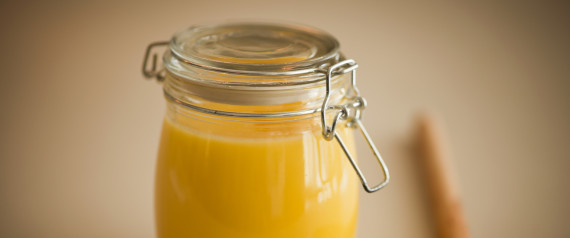
My mom leaves for work at 6am every morning, which means I make my own breakfast (three fried eggs with sautéed vegetables, and a protein shake). I fry my eggs in butter. I know most people would call me crazy, and tell me that I will get fat (I'm still the skinniest guy around!), but trust me, it's safer than vanaspati ghee (partially hydrogenated vegetable oil), and many other commercially available vegetable oils. That's because it isn't packed with trans saturated fatty acids or trans fats.
The consumption of trans fats is one of the world's biggest food safety issues, and even more so in India. If you love your packaged foods, don't forget to read the labels! Manufacturers label trans fats in their products as "edible vegetable fat", "partially hydrogenated vegetable oil", "vegetable shortening", "vanaspati ghee", "margarine", etc.
"The World Health Organisation has recommended limiting one's energy intake from trans fats to just 1%."
According to the National Heart Foundation of Australia, trans fats increase the risk of heart disease by increasing the "bad" LDL cholesterol, while also lowering the "good" HDL cholesterol in the blood.
A paper published in the International Journal of Scientific and Research Publications predicted that by 2015, more than 6 crore Indians will suffer from cardiovascular disease. A 2009 European Journal of Clinical Nutrition article associated a 2% increase in energy intake from trans fats with a 23% increase in heart disease risk. Research has also linked trans fats consumption to poorer memory in younger men.
The World Health Organisation has recommended limiting one's energy intake from trans fats to just 1%, and in June 2015, the US Food & Drug Administration gave the American food industry three years to eliminate trans fats completely from their products.
The trans fats problem in India is huge, and corresponds to an increase in the consumption of packaged foods and eating out, especially in the last decade. Its consumption has been closely linked with cardiovascular disease.
We Indians consume large quantities of trans fats in vanaspati ghee which accounts for about 10% of our total oil consumption. We also consume trans fats through seemingly 'harmless' products like namkeen, biscuits, cakes and pastries, chocolates etc. Many restaurants and street food vendors in India liberally use vanaspati ghee as a cheaper alternative to desi ghee. You may believe that the samosa or kachodi from a street vendor is unsanitary and therefore unhealthy. However, an equally serious health issue could be that it is loaded with toxic trans fats.
"Many restaurants and street food vendors in India liberally use vanaspati ghee as a cheaper alternative to desi ghee."
The Food Safety and Standards Authority of India (FSSAI) has reduced the maximum permitted amount of trans fats in edible oil from 10% to 5%. This is not enough. I believe that like the US FDA, the FSSAI must go the whole way and aim for the complete elimination of trans fats from packaged foods.
I strongly recommend reading labels before purchasing any packaged food products. Read the ingredient list and the fine print. Ask the restaurant, the street food vendor and the neighbourhood bakery if they use vanaspati or margarine in their products and if they do, do not buy or eat their stuff. If you're baking or frying at home, use butter, ghee or coconut oil. Believe it or not, they're the healthier and in most cases, tastier options. Use vegetable oils only for low heat cooking because of the problem of oxidised PUFA; but then that's the subject of another blog post. Eat healthy, stay safe.


